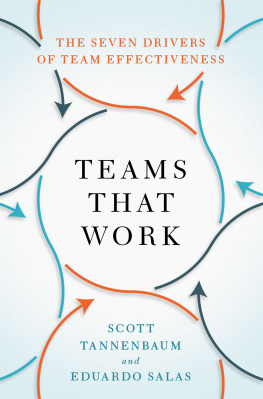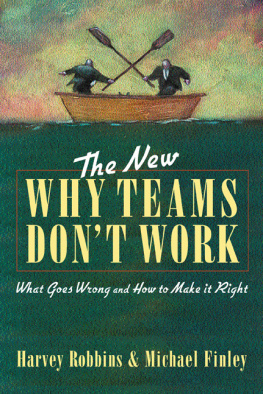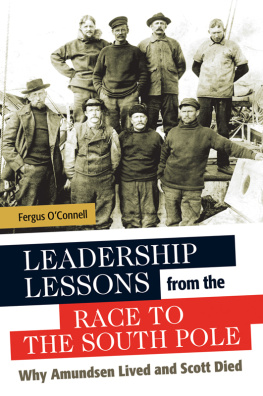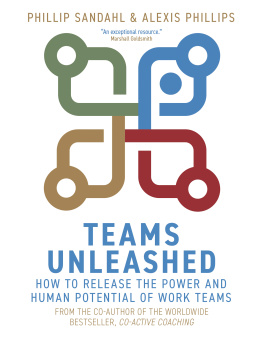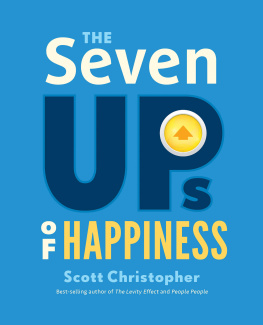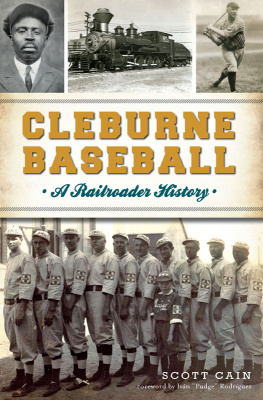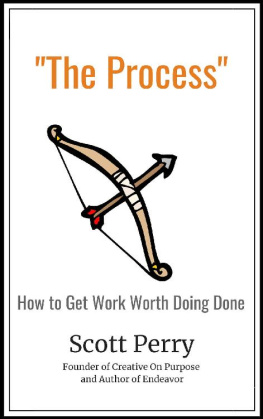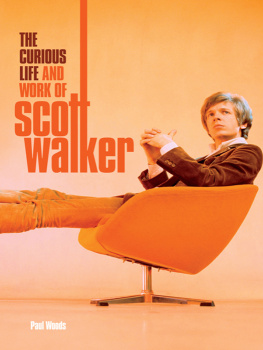Scott Tannenbaum - Teams That Work
Here you can read online Scott Tannenbaum - Teams That Work full text of the book (entire story) in english for free. Download pdf and epub, get meaning, cover and reviews about this ebook. year: 2020, publisher: Oxford University Press, genre: Home and family. Description of the work, (preface) as well as reviews are available. Best literature library LitArk.com created for fans of good reading and offers a wide selection of genres:
Romance novel
Science fiction
Adventure
Detective
Science
History
Home and family
Prose
Art
Politics
Computer
Non-fiction
Religion
Business
Children
Humor
Choose a favorite category and find really read worthwhile books. Enjoy immersion in the world of imagination, feel the emotions of the characters or learn something new for yourself, make an fascinating discovery.
- Book:Teams That Work
- Author:
- Publisher:Oxford University Press
- Genre:
- Year:2020
- Rating:4 / 5
- Favourites:Add to favourites
- Your mark:
- 80
- 1
- 2
- 3
- 4
- 5
Teams That Work: summary, description and annotation
We offer to read an annotation, description, summary or preface (depends on what the author of the book "Teams That Work" wrote himself). If you haven't found the necessary information about the book — write in the comments, we will try to find it.
Teams That Work — read online for free the complete book (whole text) full work
Below is the text of the book, divided by pages. System saving the place of the last page read, allows you to conveniently read the book "Teams That Work" online for free, without having to search again every time where you left off. Put a bookmark, and you can go to the page where you finished reading at any time.
Font size:
Interval:
Bookmark:


Oxford University Press is a department of the University of Oxford. It furthers the Universitys objective of excellence in research, scholarship, and education by publishing worldwide. Oxford is a registered trade mark of Oxford University Press in the UK and certain other countries.
Published in the United States of America by Oxford University Press
198 Madison Avenue, New York, NY 10016, United States of America.
Oxford University Press 2021
All rights reserved. No part of this publication may be reproduced, stored in a retrieval system, or transmitted, in any form or by any means, without the prior permission in writing of Oxford University Press, or as expressly permitted by law, by license, or under terms agreed with the appropriate reproduction rights organization. Inquiries concerning reproduction outside the scope of the above should be sent to the Rights Department, Oxford University Press, at the address above.
You must not circulate this work in any other form and you must impose this same condition on any acquirer.
Library of Congress Cataloging-in-Publication Data
Names: Tannenbaum, Scott, author. | Salas, Eduardo, author.
Title: Teams that work : the seven drivers of team effectiveness /
Scott Tannenbaum and Eduardo Salas.
Description: New York, NY : Oxford University Press, [2021] |
Includes bibliographical references and index.
Identifiers: LCCN 2020006697 (print) | LCCN 2020006698 (ebook) |
ISBN 9780190056964 (hardback) | ISBN 9780190056988 (epub) |
ISBN 9780190056995
Subjects: LCSH: Teams in the workplace. | Organizational behavior. |
Organizational effectiveness.
Classification: LCC HD66 .T364 2020 (print) | LCC HD66 (ebook) |
DDC 658.4/022dc23
LC record available at https://lccn.loc.gov/2020006697
LC ebook record available at https://lccn.loc.gov/2020006698
Dedicated to Becky and Vicki, our teammates for life
Throughout our careers we have worked with, led, and advised all sorts of teams. Like most of you, we have experienced the power of high-performing teams and the angst of struggling teams. It made us want to crack the code. How could we help more teams succeed?
While we were actively trying to help teams become more effective, we were also conducting empirical research and reading studies published by researchers around the globe. We became increasingly excited as we saw the research grow and mature to the point where we felt it could yield practical, evidence-based advice. Teams became our passion, and we developed a conviction that team leaders and members could create better, more successful team experiences, if only they knew about the research. It is that passion and conviction that led us to write this book.
This book is possible because of the efforts of those researchers who have conducted high-quality studies about teams, including members of the industrial/organizational psychology and human factors communities. That research provides the foundation for our framework and advice. Researchers, we alluded to your work throughout the bookwe hope we portrayed it accurately and made it accessible to an audience beyond the academic journals. Your work deserves the visibility, and we thank you for what you have done and continue to do to help crack the code.
To the many people who participated in our research, including military men and women, business leaders, astronauts, technologists, flight crews, pilots, air traffic controllers, production team members, healthcare practitioners, and financial professionalsthank you for allowing us to poke and probe and watch and listen to you as we tried to uncover what really drives teamwork. Thank you for opening your cockpits, your operating rooms, your neonatal intensive care units, your plants, your oil platforms, your boardrooms, your air traffic control towers, your work spacesthey provided an invaluable opportunity to ground us and show us how teams try to address real challenges. Thank you!
To our consulting clients, a big thank you for trusting us to work with and advise your teams; we learned a tremendous amount from those experiences. To our research sponsors, noted in the following textthank you for your commitment to the science we represent. Your partnership made a difference and your belief in us helped.
Prior to writing the book, we delivered many talks and led discussions about the science of teamwork at various companies, associations, and meetings. Audience members asked us questions about and shared examples of their teamwork challenges, which helped us better understand many of the common pain points we address in the book. To those of you who asked us, Do you have a book on this? we want to thank you for the encouragement. We can now answer, Yes we do!
Wed like to acknowledge the various agencies that have supported our research, including the US Army Research Institute, the Air Force Human Resources Lab, the Army Research Lab, the Office of Naval Research, the NAWC-Training Systems Division, NASA, the Agency for Healthcare Research and Quality, the National Science Foundation, and the Federal Aviation Administration. A heartfelt thank you to our colleagues in those agencies including Jim Battles, Wink Bennett, Bridget Boyle, Colanda Cato, Stan Collyer, Eleana Edens, Jimmy Garrett, Jay Goodwin, Stan Halpin, Kathryn Keeton, Heidi King, Lauren Leveton, Leah Rowe, Lauren Landon, Greg Ruark, and Brandon Vessey. While we are appreciative of the funding you provided, we value your collaboration and input even more.
Over the years, weve been extremely fortunate to have great teammates, collaborators, and partners who educated, challenged, and encouraged us. To our colleagues from The Group for Organizational Effectivenessincluding Becky Beard, Jamie Levy, and George Alligerwe are grateful for the support and advice you provided as we worked shoulder to shoulder on many research and consulting projects.
We also want to recognize some of the people who influenced our thinking about teams and who enriched our journey toward the development of this book, including Bill Baetz, David Baker, Wendy Bedwell, Suzanne Bell, Lauren Benishek, Clint Bowers, Art Blaiwes, Mike Brannick, Shawn Burke, Jan Cannon-Bowers, David Carnegie, Michael Castellana, Chris Cerasoli, Deb Cohen, Marvin Cohen, Chuck DBear Colgrove, Nancy Cooke, Mike Coovert, Chris Coultas, Leslie DeChurch, Deborah DiazGranados, Aaron Dietz, Dan Dwyer, Jim Driskell, Tripp Driskell, Erik Eddy, Amy Edmonson, Jennifer Feitosa, Steve Fiore, Jared Freeman, Clay Foushee, Jennifer Fowlkes, Mike Garrity, Megan Gregory, Becky Grossman, Richard Hackman, Mitch Heine, Bob Heilmreich, Barb Hess, Al Holland, Bill Howell, Ashley Hughes, Chelsea Iwig, Florian Jentsch, Joan Johnston, Joe Keebler, Deanna Kennedy, Gary Klein, Steve Kozlowski, Kurt Kraiger, Mike Kukenberger, Christina Lacerenza, Gary Latham, Liz Lazzara, Tammy Lowry, Margaret Luciano, Rebecca Lyons, Gerry Malecki, Travis Maynard, Shannon Marlow, Jen McCuen, Susan McDaniel, Dan McFarland, Mike Mitchell, Bill OKeefe, Andy Ortiz, Randy Oser, Heather Priest, Carolyn Prince, Joan Rentsch, Dick Reynolds, Bill Rizzo, Mike Rosen, Mary Salisbury, Marissa Schuffler, Diane Selleck, Daniel Serfaty, Kevin Stagl, Kim Smith-Jentsch, Maryanne Spatola, Renee Stout, Eric Thomas, Mark Teachout, Amanda Thayer, Sallie Weaver, Dale Watson, Jessie Wildman, Kat Wilson, Steven Woods, Janis Yadiny, Gary Yukl, Wayne Zachary, and Stephanie Zajac. Wed also like to acknowledge the many graduate students weve interacted with over the years for engaging in conversations that helped us refine our thinking. To Natalie Croitoru, thank you for your assistance tracking down research articles as we wrote the book. And to Amy Callan, thanks for the superb ongoing administrative support.
Font size:
Interval:
Bookmark:
Similar books «Teams That Work»
Look at similar books to Teams That Work. We have selected literature similar in name and meaning in the hope of providing readers with more options to find new, interesting, not yet read works.
Discussion, reviews of the book Teams That Work and just readers' own opinions. Leave your comments, write what you think about the work, its meaning or the main characters. Specify what exactly you liked and what you didn't like, and why you think so.

